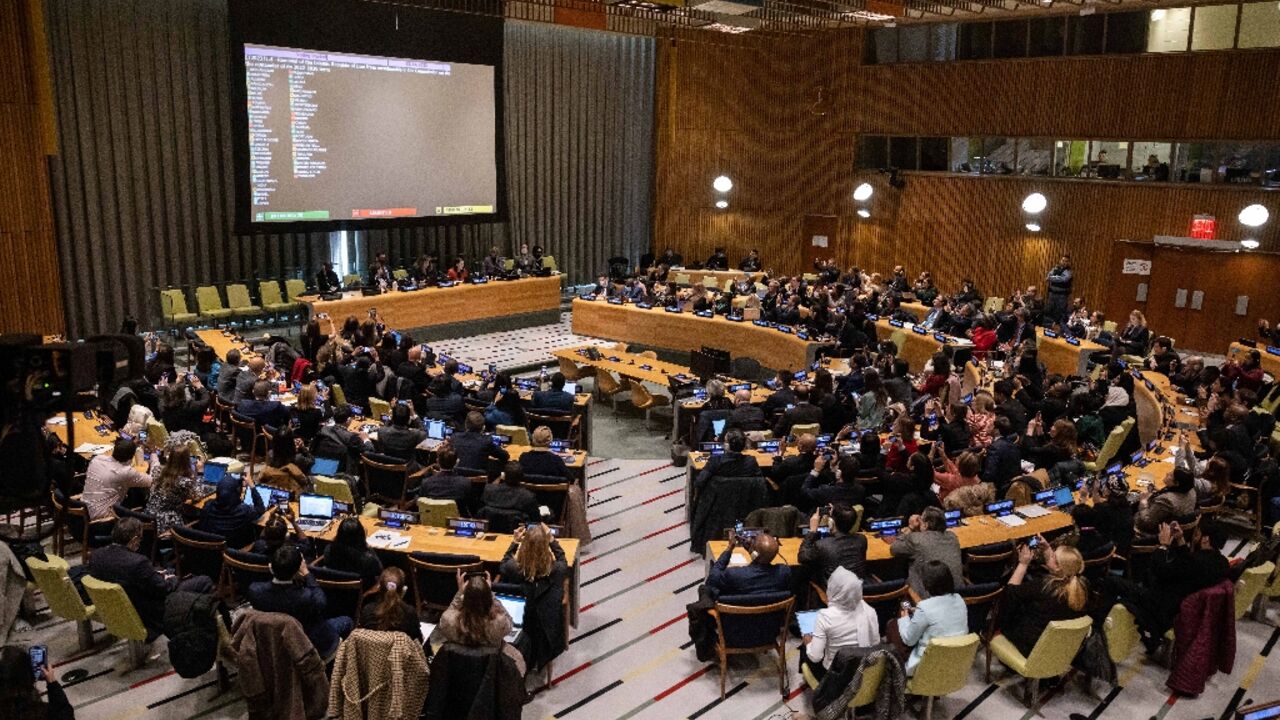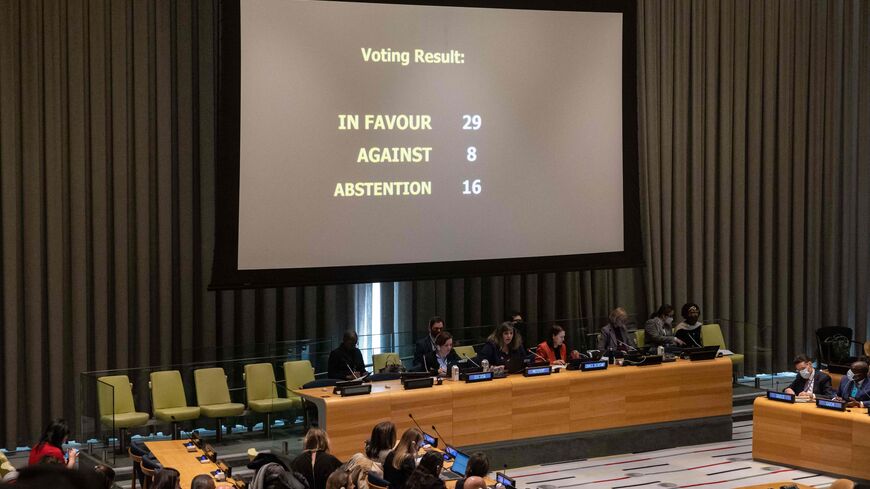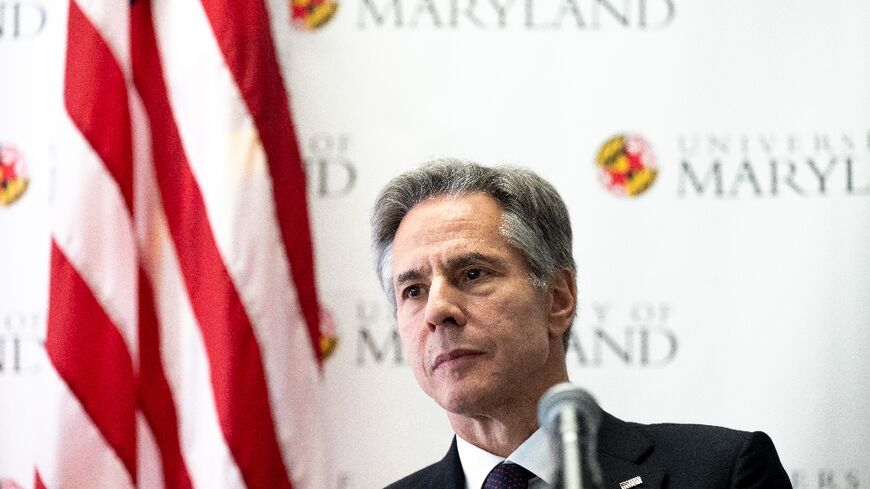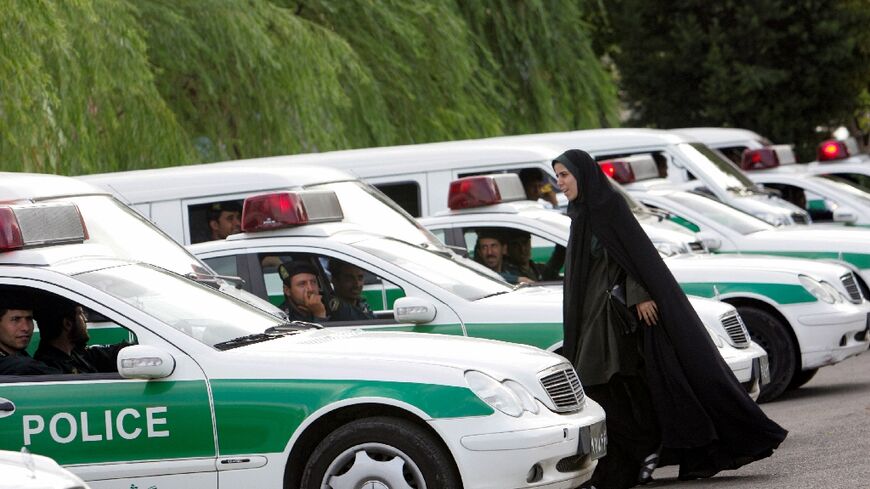UN removes Iran from women's rights body over protest crackdown

The UN on Wednesday voted to remove Iran from a women's rights body, following a concerted campaign by the United States, over Tehran's brutal crackdown of women-led protests.
Iranian pro-democracy activists hailed the expulsion of the Islamic republic from the United Nations Commission on the Status of Women (UNCSW) for the remainder of its 2022-2026 term.
A simple majority was needed to adopt the move, which was proposed by the United States, opposed by Iran allies Russia and China, and marks a diplomatic victory for Washington.
Twenty-nine members of the UN Economic and Social Council (ECOSOC) voted in favor, eight countries voted against and 16 abstained.
The resolution strips Iran of its membership of the commission with immediate effect.
The text says the Iranian leadership "continuously undermine and increasingly suppress the human rights of women and girls, including the right to freedom of expression and opinion, often with the use of excessive force."
It adds that Iran's government does so "by administering policies flagrantly contrary to the human rights of women and girls" and the commission's mandate "as well as through the use of lethal force resulting in the deaths of peaceful protestors, including women and girls."
The commission is the principal global intergovernmental body exclusively dedicated to the promotion of gender equality and the empowerment of women.
Iran has been gripped by demonstrations since the September 16 death in custody of Masha Amini, a young Iranian Kurd who had been arrested for allegedly violating the country's strict dress code for women.
Authorities have since made thousands of arrests in a crackdown on what they regard as riots and handed down at least 11 death sentences in connection with the protests.
In early November, Vice President Kamala Harris said the United States would work with other nations to oust Iran from the commission. Former Secretary of State Hillary Clinton also campaigned for the move.
"This vote is another sign of the growing international consensus on Iran and demands for accountability," US National Security Advisor Jake Sullivan said in a statement.
- 'Historic' -
Roya Boroumand, co-founder of the Washington-based Abdorrahman Boroumand Center, and Iranian rights group, said the result was "another good day for universal human rights and international solidarity."
"Iranian women were heard!" she tweeted.
Mahsa Alimardani, an Iran researcher for the Article 19 freedom of expression group, posted on Twitter: "A historic move and a clear sign by the international community that the Islamic Republic's crimes will not be tolerated."
Opponents, however, noted that Iran had been elected to the body and that expelling it set "a dangerous precedent."
UN watchers also said the initiative had caused some discontent among diplomats, including US allies who felt they were left with no choice but to back it.
"The US forced Russia off the Human Rights Council in April, but there is a formal mechanism for that," said Richard Gowan, UN director at the International Crisis Group.
"This vote against Iran was pretty unprecedented to my knowledge and that is why quite a lot of states have felt queasy about it," he told AFP.
Nations on the women's commission are elected by the UN Economic and Social Council, whose members in turn are voted on by the General Assembly.
Iran had accused Washington of pressuring countries ahead of the vote.






